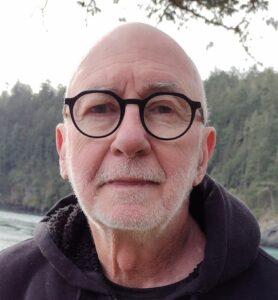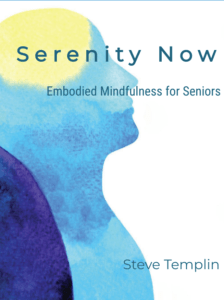Slowing down your breathing is one of the most important things you can do to positively influence your physical and emotional health. It’s amazing that we can influence our biology so profoundly with something that’s free … as well as, side-effect free.
New science is demonstrating that by consciously attending to your breathing you can reprogram your autonomic nervous system, the part of your nervous system that’s primarily responsible for your overall biochemistry and health. The point here is that learning to breathe differently can influence your health in ways that no drug, or natural remedy, could ever do.
Slowing down your breathing activates the healing wisdom of your body, while inhibiting the stress response. The Heart Rate Variability measurement, that reflects the balance of the autonomic nervous system, improves most consistently as breathing slows down.
So an adult, or a child, can learn to slow down their breathing … to a frequency of about five to six breaths per minute, to relieve anxiety, help with sleep, improve faulty digestion, increase circulation, reduce blood pressure, or to bring more clarity to a clouded mind.
Since the autonomic nervous system (ANS ) controls most bodily functions, improving ANS function through slow, conscious breathing, can improve a broad range of physical, emotional, or mental issues.
A daily practice session, or two, where you remind yourself to breathe from your belly … slowly … will over time become more and more automatic … as will the healing benefits. Research shows that the benefits of a daily breathing practice of 20-30 minutes are cumulative … so daily practice is an ideal strategy for reprogramming your health.
You can download the HeartMath Quick Coherence guide for an easy reference for learning to breathe slowly. This technique is the process that I use to regularly introduce patients to Self-Regulating practices.
Specifically, on step two of the guide, you can explore slowing your breath down to about five to six breaths a minute for best results. If this is too slow for you to do comfortably at the start, just slow down to a rate that is comfortable for now. You can read more about this new science at my website.
 Steven Templin, D.O.M., Dipl. Ac., is a Doctor of Oriental Medicine, specializing in Mind-Body Medicine. He teaches and consults online, and sees patients at the Natural Medicine Center in Lakeland, Florida. You can learn more about Dr. Templin and his healing program Inner Ecology: Healing Your Three Brains for Optimum Immune Function, Detoxification, Mood, Cognition, and Overall Health and Well-Being by visiting www.newmedicalmodel.com.
Steven Templin, D.O.M., Dipl. Ac., is a Doctor of Oriental Medicine, specializing in Mind-Body Medicine. He teaches and consults online, and sees patients at the Natural Medicine Center in Lakeland, Florida. You can learn more about Dr. Templin and his healing program Inner Ecology: Healing Your Three Brains for Optimum Immune Function, Detoxification, Mood, Cognition, and Overall Health and Well-Being by visiting www.newmedicalmodel.com.

 Steve is a retired Doctor of Oriental Medicine, Acupuncture Physician, and HeartMath Trauma-Sensitive Certified Practitioner with over 35 years of clinical experience in the fields of Energy Medicine, Energy Psychology, and Biofeedback.
Steve is a retired Doctor of Oriental Medicine, Acupuncture Physician, and HeartMath Trauma-Sensitive Certified Practitioner with over 35 years of clinical experience in the fields of Energy Medicine, Energy Psychology, and Biofeedback. 